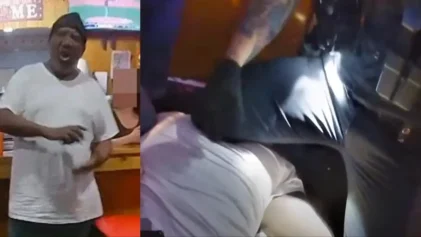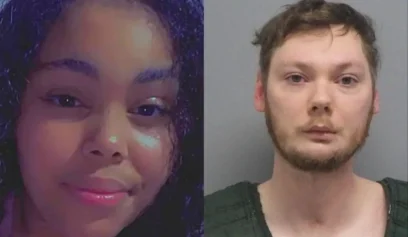A U.S. Navy chief petty officer will face a military judge next month over allegations she swiped a bottle of Versace body lotion from a Navy Exchange store in northern Florida, the Navy Times reports.
However, an attorney for Chief Boatswain’s Mate Kathy M. Tonnah insists her client is innocent.

An attorney for chief petty officer Kathy M. Tonnah insists her client didn’t steal anything. (Photo: U.S. Navy)
Lt. Cmdr. Tracy High says Tonnah was perusing $84 gift sets at the Navy-run retailer in Jacksonville on June 2 when she spotted one containing perfume, shower gel and body lotion. She didn’t want to keep the gel, so she removed the item from the set she had and replaced it with a lotion from another set.
Tonnah paid for the modified set with two lotions, according to High, only to be “confronted outside and treated like a thief.” To make matters worse, the store reportedly forced the chief petty officer to pay an additional $200 in “administrative costs.”
“That’s the real larceny there,” her attorney said.
According to High, Tonnah’s command wanted to send her to a captain’s mast procedure for a determination in front of a superior officer for allegedly shoplifting, but the sailor stood her ground “and refused to accept nonjudicial punishment for a crime she didn’t commit, demanding the case go before a jury of her peers.” The case has since been referred to a special court-martial trial before a judge.
The Navy’s handling of the case underscores a previously reported trend of Black service members facing harsher and more frequent punishments for minor infractions. A 2017 report by advocacy group Protect Our Defenders found that Black service members were more than twice as likely to face a court-martial or other forms of military discipline than white service members.
In the case of the Navy specifically, Black sailors were also 37 percent more likely to have disciplinary action taken against them in an average year.
“Military leadership has been aware of significant racial disparity in its justice process for years, and has made no apparent effort to find the cause of the disparity or to remedy it,” authors of the new report wrote.
Tonnah’s case is expected to go to trial in January 2020.
“We welcome her day in court for the opportunity to exonerate her,” said High.


